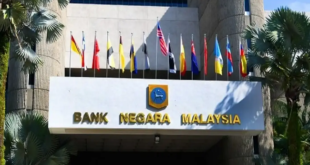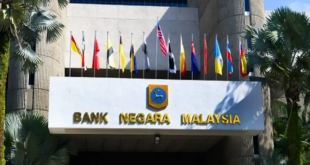Taiwan’s Taiex has risen to become Asia’s top-performing stock market index in 2024, with Hong Kong’s Hang Seng Index following closely in second place, while the FTSE Bursa Malaysia KLCI (FBM KLCI) has secured a solid sixth position.
As of December 23, the Taiex recorded a remarkable increase of 28.85% for the year, with the Hang Seng at 16.63%, and FBM KLCI at 9.73%. Singapore’s Straits Times Index claimed the third spot at 15.78%, trailed by Japan’s Nikkei 225 at 15.65% and China’s CSI 300 Index at 14.64%, according to a ranking compiled by CNBC yesterday.
Completing the roster of Asia’s top bourses are India’s Nifty 50 at 9.28% and BSE Sensex at 8.69%, along with Australia’s ASX 200 at 8.05%.
Conversely, South Korea’s Kospi Composite Index, which plunged 8.03%, endured the embarrassment of being Asia’s least successful market. The Jakarta Composite Index also lagged, experiencing a loss of 2.42%, while Thailand’s SET dropped by 2.04%.
The robust enthusiasm from investors for technology and tech-related stocks propelled the Taiex, with major tech players such as Taiwan Semiconductor Manufacturing Company (TSMC) soaring 82%, and Foxconn, listed as Hon Hai Precision Industry, witnessing a rise of 78%.
Although the tech and artificial intelligence (AI) surge bolstered Taiwan’s stocks, it resulted in minimal progress in South Korea, which stands as the only major Asian market finishing the year in negative figures.
This year has been grim for South Korean equities, with the so-called ‘Korea discount’ widening in comparison to global counterparts. The nation’s recent political turmoil is anticipated to embed this trend further.
The ‘Korea discount’ signifies South Korean stocks trading at depreciated valuations against regional competitors, driven by investor apprehensions regarding circumstances like corporate governance at family-run conglomerates, or ‘chaebols’, which wield significant influence over the national economy.
The prominent chaebols comprise industry titans such as Samsung Electronics, LG, SK, and Hyundai.
The ongoing political unrest has exacerbated investment sentiment, particularly following President Yoon Suk Yeol’s impeachment that occurred post his martial law declaration on December 3.
Uncertainty looms for 2025.
While the outlook has largely been optimistic for Asia’s leading stock exchanges, including Bursa Malaysia, in 2024, analysts convey a sense of trepidation for the upcoming year.
Japanese financial services firm Nomura anticipates that Asia will confront tighter global financial conditions in 2025, stemming from elevated interest rates and a robust dollar. Their analysts ominously noted that ‘turbulence looms ahead for the region’.
They suggest that, although strong AI demand and export front-loading may offer some growth support in the initial quarter, the region ‘seems poised for choppier waters’ from the second quarter onwards, due to the repercussions of the Donald Trump presidency, China’s overproduction, and a decelerating semiconductor cycle.
Nevertheless, Nomura forecasts better growth prospects for Asian nations with stronger domestic demand support systems, such as Malaysia and the Philippines, while India, Thailand, and South Korea may encounter challenges.
The status of China’s economy is regarded as a crucial focus for investors, as its health or decline will reverberate through its Asian trading partners and their stock markets.
Nomura’s analysts foresee additional stimulus from China to bolster its economy, while emphasizing the necessity for Beijing to stabilize its ailing property market, rectify its fiscal policy, and mitigate geopolitical tensions to foster a genuine and sustainable recovery.
The FBM KLCI, which concluded 2023 with 1,454.66 points, closed at 1,596.20 yesterday. This index, co-managed by FTSE and Bursa Malaysia, comprises the 30 largest companies on the exchange by market capitalization.


